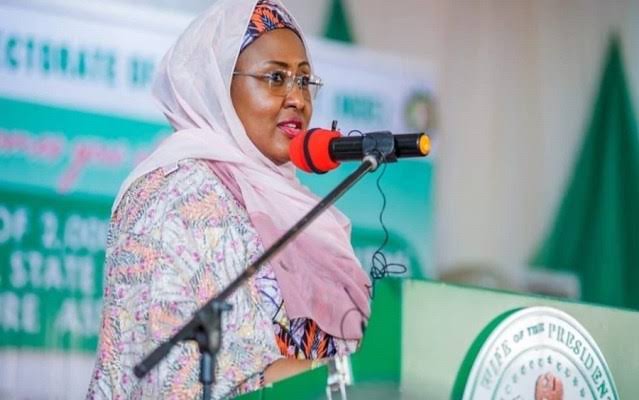Wife of the President, Aisha Buhari, has said that the full implementation of policies like the National Strategic Plan of Action on Nutrition would help tackle the burden of malnutrition in the country, Njenje Media News reports.
The first lady, who stated this in Abuja during a consultative meeting with local producers of nutrition commodities, organised by Future Assured in collaboration with the Federal Ministry of Health, UNICEF and other partners, said Nigeria remains one of the highest contributors to the global malnutrition burden.
Represented by the national coordinator of Future Assured, Dr Mohammad Kamal, Mrs Buhari said
“Investing in RUTF and nutrition commodities with our local available resources is not only a business, but a contribution to our national development,” he said.
The first lady had in 2019 convened an interactive session with the private sector and enjoined them to increase effort towards the local production of RUTF.
She said it was unacceptable for Nigeria as one of the highest contributors to Severe Acute Malnutrition (SAM) in the world to continue to rely on the importation of RUTF.
Meanwhile, the minister of health, Dr. Osagie Ehanire, has that the country was considering local production of nutrition commodities like Ready to Use Therapeutic Foods (RUTF) and micro nutrient powder, saying it will help tackle the burden of malnutrition and improve the country’s Gross Domestic product (GDP).
Ehanire also said that the federal government was ready to tackle all challenges to domestic production of nutrition products in the country.
“The federal government is committed to production of RUTF in six geopolitical zone of Nigeria,” said Ehanire.
He noted that even though therapeutic foods currently used in the treatment of malnutrition were included in the essential medicines list, they were procured from outside the country thereby affecting availability and accessibility due to increase in demand.
According to Ehanire, local production of RUTF will prevent stock outs and make them available and accessible at reasonable costs for the treatment of malnourished children. “It will promote conservation of forex and growth of GDP,” he said.








